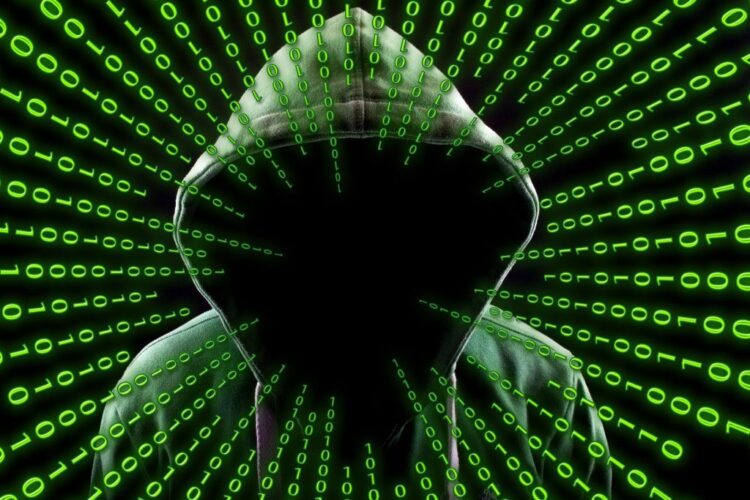The common assumption we make when we hear the word “hacking” is that cybercriminals broke the law to access a system, network, or account to engage in illegal activity. However, this is not true in all cases. Hacking isn’t always done with the purpose of hurting someone. Programmers frequently require hacking to enhance IT security.
Ethical hacking is the practice of hacking for security reasons. On the other hand, unethical or black hat hacking is the act of hacking an organization or person’s system with the aim to cause trouble. In this article, we will deeply go through the concept of ethical and unethical hacking.
What is Hacking?

Hacking is an attempt to access a computer system or a private network within a system. Hacking is defined as unauthorized access to or control of computer network security mechanisms.
Why is Hacking Done?
Money is a major driving force behind many cyber-crimes, and cybercriminals are mostly after monetary gains. Hackers use several strategies, such as malware, phishing assaults, and brute-force attacks, to steal victims’ financial or Personally Identifiable Information (PII).
- On the dark web, some hackers sell the information they steal. Essentially, this is a black market where hackers and other cybercriminals can carry out both legitimate and criminal activities.
- Blackmail is an extremely potent weapon in the armory of any cybercriminal, including hackers. For instance, hackers may intercept personal media files (pictures, movies, etc.) or steal secret data and then demand payment to keep the material private. They can even lock people out of their own devices or encrypt sensitive data, then demand a ransom in exchange for access.
- One of the most popular methods employed by cybercriminals is phishing. Hackers impersonate any person or business that victims trust, to send them phishing communications. By pretending to have a fake emergency and requesting their assistance, they psychologically force victims into sending them money.
What is Ethical Hacking?

Ethical hacking is the legal process of finding weaknesses in an application, system, or organization’s infrastructure and overcoming system security to find possible data breaches and network threats. Ethical hackers probe a system or network for vulnerabilities that they can exploit or fix before malicious hackers.
To test the system’s defenses, the system or network’s owner permits cyber security professionals to proceed with such actions. In contrast to malicious hacking, this method is therefore preplanned, sanctioned, and more importantly, completely legal.
Ethical hackers search the system or network for vulnerabilities that malevolent hackers can take advantage of or destroy. To find ways to improve the security of the system, network, and applications, they gather and analyze the data. By doing this, they can strengthen the security footprint and make it more resistant to attacks or deflect the attacks. There are various courses based on training for ethical hacking that candidates can enroll in if they are inclined towards working as a security expert for organizations.
What is Unethical Hacking?
Unethical hacking is done without the target of the cyber-attack being aware of it. It is a common practice to hack into a network system to steal data or money, and occasionally inflict damage by introducing a virus or malware program. People who participate in unethical hacking are regarded as cybercriminals and are breaking the law.
1. Black Hat Hackers

Like White Hat Hackers (Ethical Hackers), Black Hat Hackers are proficient programmers that specialize in cybersecurity but hack systems with malicious purposes. These cybercriminals break into the system to gain unapproved access to the devices. Black Hat hackers usually operate illegally and work for personal benefit.
2. Gray Hat Hackers
Gray hat hackers may occasionally breach laws or ethical norms, but they lack the malicious intent of a black hat hacker.
When a white hat hacker finds a system flaw, they will only use it with the organization’s consent and keep it a secret till the time it has been fixed. The black hat, however, will take advantage of it illegally or instruct others on how to do so. The gray hat hackers will not instruct others on how to illegally exploit it.
3. Blue Hats Hackers
Blue hat hackers are white hat hackers who are employed by a company to perform penetration tests to help that company’s security systems.
4. Green Hats Hackers

Green hat hackers are “green” in the sense that they lack the technical expertise of seasoned hackers and are inexperienced. Phishing and other social engineering strategies may be used by green hats to get around security measures.
5. Red Hats Hackers
Red hat hackers, also referred to as vigilante hackers, are driven by a desire to retaliate against black hat hackers, but they accomplish this by infiltrating black hat communities on the dark web and initiating hacking attacks against their networks and gadgets.
What is the Difference Between Ethical and Unethical Hacking?
An ethical hacker is hired by the government, a business, or a private citizen to find and stop vulnerabilities, whereas an unethical hacker performs comparable illegal and malicious hacking for profit. The main distinction is that the client pays the ethical hacker to find vulnerabilities so that it may prevent an unethical hacker from taking advantage of them.
The unethical hacker, on the other hand, penetrates network systems and uses vulnerabilities in various ways to cause harm or loss to organizations or people. The unethical hacker is not hired to find and exploit network vulnerabilities, whether it be an IoT attack, SQL injection, or one of many other methods of a network breach.
Similarities Between Ethical and Unethical Hacking

There can be a lot more to say about ethical hacker vs. unethical hacker, but at the end of the day, they are both hackers. An ethical hacker is a sought-after cyber security expert who defends our networks from other cybercriminals. No matter if you’re an ethical, black, or gray-hat hacker, the hacking techniques are the same.
All the hackers are knowledgeable about networks, operating systems, and basic computer concepts. They all eventually try to use zero-day attacks to find vulnerabilities. The hacker’s aim is the primary distinction between ethical and unethical hacking.
How is the Career in Ethical Hacking?
Organizations are willing to pay hefty prices to keep their systems and information secure as cybercriminals have become more adept in their attacks. Therefore, enrolling in a cybersecurity course is a fantastic choice if you appreciate technology and want to pursue a career that will be beneficial to you in the future. For instance, KnowledgeHut provides a range of training for ethical hacking courses in addition to other data sciences, Machine Learning, and Artificial Intelligence programs.
Ethical Hacking Certifications to Boost Your Career
For professions in ethical hacking, penetration testing, and other offensive cybersecurity fields, these security certifications are very relevant:
- Certified Ethical Hacker (CEH)
- GIAC Penetration Tester (GPEN)
- CompTIA PenTest
- Offensive Security Certified Professional (OSCP)
FAQs

1. Why are hackers being unethical?
Unethical hackers are those that violate the computing code of ethics, standards, and laws for malicious purposes. They might be operating in their own best interests for fame or financial gains.
2. What is an example of unethical hacking?
Unethical hacking is used to destabilize official website networks and breach communication between two or more parties.
3. How do I become an ethical hacker?
An applicant for an ethical hacker position must be able to demonstrate advanced cybersecurity technical abilities. An element of the intended experience is the capacity to suggest mitigation and remediation measures.
4. Is ethical hacking easy?
Despite being a highly technical job, ethical hacking is not difficult. You must be an expert in any programming language, operating system, and computer networking.
What skills do hackers have?
- Tracking and reconnaissance
- Monitoring networks
- Vulnerability assessment
- Computer hacking
- Malware dangers
- Using social engineering
- Session espionage







